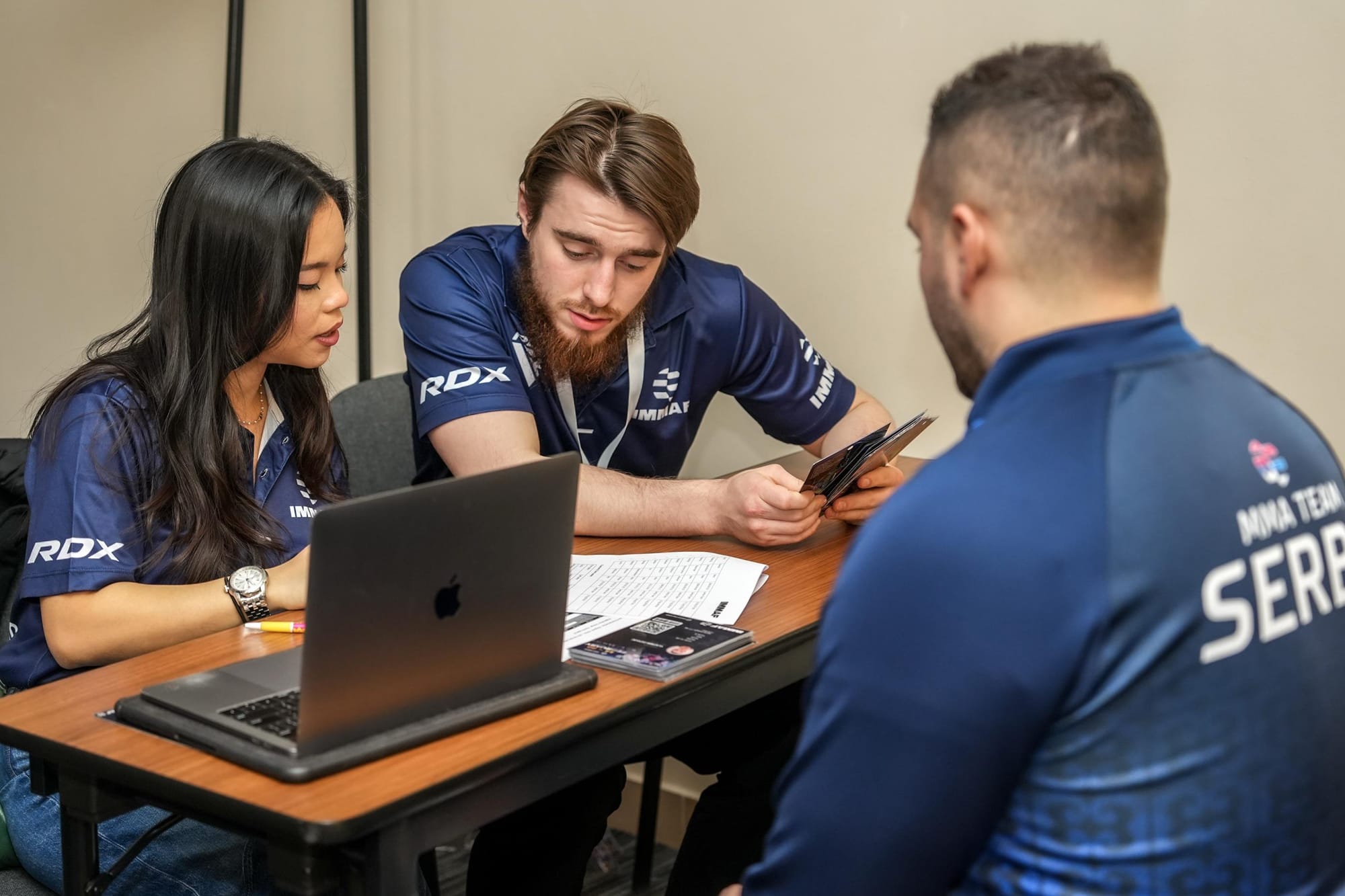Hasan Khan
As part of its continued drive to raise standards in athlete welfare, IMMAF has announced that its Safeguarding Liaison, Sophie Mueller, will begin the International Olympic Committee’s (IOC) Certificate: Safeguarding Officer in Sport course this September. The course, which is globally recognised and the first of its kind, marks a significant development in IMMAF’s strategic commitment to embedding robust, globally recognised safeguarding practices across all levels of the sport.
Awarded by the IOC, the certificate programme equips safeguarding officers with essential knowledge and tools to protect athletes and vulnerable individuals from harassment and abuse. It addresses key areas such as recognising signs of abuse, handling disclosures, developing effective safeguarding policies and fostering safer environments within sport organisations. For MMA federations, where full-contact training and competition are central to athlete development, such training plays an especially critical role.
“This course enhances the standard of safeguarding within MMA by promoting evidence-based best practices, equipping safeguarding officers with practical tools, as well as fostering a culture of safety and accountability,” said Mueller. “For a full-contact sport like MMA, where athletes are often young and vulnerable, this kind of structured, professional training is vital.”
Mueller outlined the particular safeguarding challenges faced within combat sports, including the normalisation of physical aggression, intense power dynamics between coaches and athletes and the absence of consistent policies in some regions. She noted that athletes, especially those who are younger or less experienced, may struggle to distinguish between acceptable training behaviour and inappropriate conduct. Moreover, fear of retaliation or exclusion can often prevent individuals from reporting concerns. The IOC course, she explained, provides safeguarding officers with the frameworks and confidence needed to identify red flags in high-contact environments, manage sensitive situations with care and introduce culturally aware sport-specific safeguarding strategies.
IMMAF has already made significant progress in formalising its safeguarding systems. All IMMAF youth coaches are now required to complete an online safeguarding course and undergo criminal record checks before participating in official events. Additionally, safeguarding officers are present at IMMAF competitions to provide on-site support to athletes. Standardised guidelines, onboarding for staff and educational resources for national federations have helped create a consistent safeguarding baseline across IMMAF’s global network.
“Safeguarding is most effective when it’s proactive, not just about managing harm after it occurs, but about creating a culture where harm is far less likely to happen in the first place,” Mueller explained.
This focus on prevention is especially evident at IMMAF Youth Championships, where safeguarding officers are fully integrated into event operations. Mueller described how briefings for coaches, clear behavioural expectations and accessible emotional support structures are essential to ensuring the safety and well-being of young athletes. She also pointed to the strong link between psychological welfare and long-term performance, adding that when athletes feel safe, respected and supported, they are better equipped to excel in sport.
International collaboration is another key pillar of IMMAF’s safeguarding strategy. As a federation comprising over 130 member countries, the organisation acknowledges the importance of working collectively to ensure consistent safeguarding standards regardless of cultural, legal or economic differences. By encouraging knowledge sharing and offering practical support to smaller or developing federations, IMMAF is helping to create a unified global safeguarding culture in MMA.
Looking ahead, Mueller noted that IMMAF is now shifting from foundational implementation to deeper cultural integration. With core systems in place, the next phase will focus on sustainable safeguarding practices, ongoing monitoring and athlete centred innovation. The role of safeguarding officers, she emphasised, will continue to evolve from reactive responders to strategic leaders within sport.
IMMAF aims to build a sport where athlete welfare is inseparable from competitive excellence. Safeguarding is not a box ticking exercise. It’s a mindset, a culture and a commitment that must be lived out every day by everyone involved.

